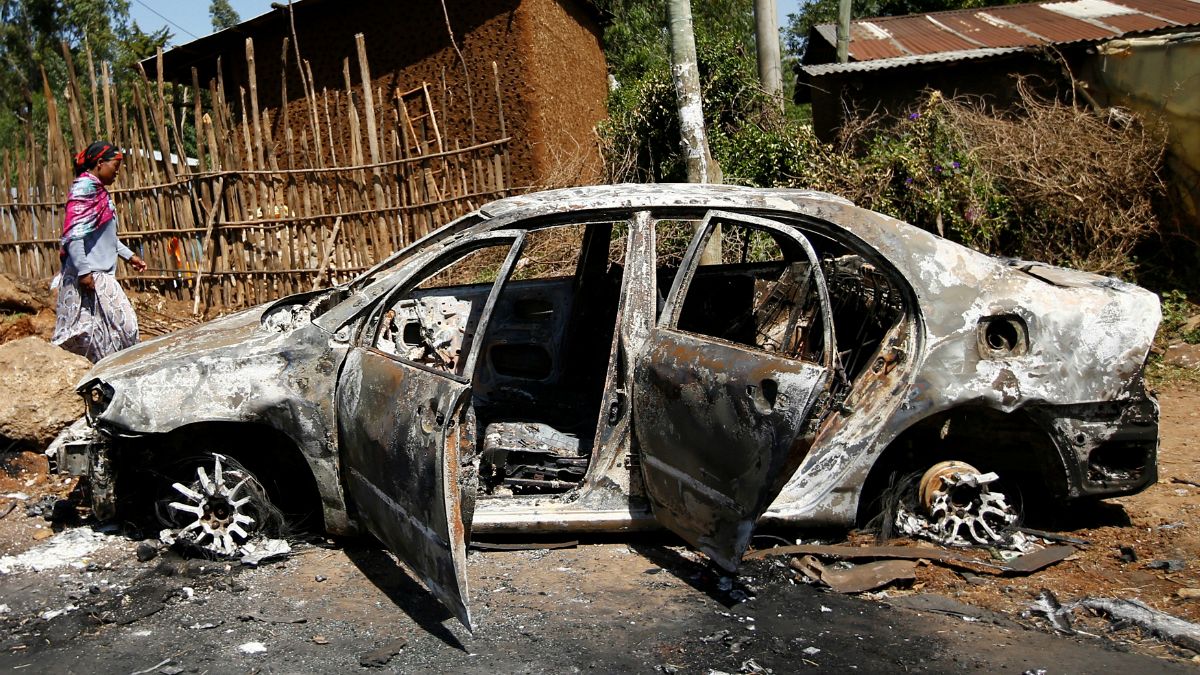Ethiopia has declared a six-month long state of emergency across the whole country following months of anti-government protests.
Ethiopia has declared a six-month long state of emergency across the whole country following months of anti-government protests.
Rights groups say more than 500 people have died in the unrest, the government disputes this figure
In a televised address Ethiopian Prime Minister Hailemariam Desalegn said the measure had been taken to protect citizens:
“The cause of this (state of emergency) is that anti-peace forces in collaboration with foreign enemies of the country are making organised attempts to destabilise our country, to disrupt its peace and also to undermine the existence and security of its peoples.”
Divisions
Residents in the capital Addis Ababa are divided over whether a state of emergency will help the situation.
“The state of emergency will not work. It may serve as a temporary fix but will not bring a lasting solution,” said one man but another thought the government had been slow to react. “In my opinion, the government is late to declare a state of emergency. If the government had taken this action earlier, the recent destruction that happened across the country would not have happened.”
The violence is being fueled by two of the country’s largest ethnic groups – the Oromo and the Amhara who make up about 60% of the population. They complain that power in Ethiopia is held by a tiny Tigrean elite.
Economy
The violence has cast a shadow over a nation where a state-led industrial drive has created one of Africa’s fastest growing economies.
The unrest has included attacks on businesses, many of them foreign-owned, including farms growing flowers for export.
Emergency decree
Attorney General Getachew Ambaye said the decree would permit authorities to stop and search and also detain suspects without court authorisation, as well as carry out house searches.
It also bars the “preparation, distribution and exhibition of material that could incite chaos”, he said in an official announcement.
The measures did not contain curfews, but Getachew said the command post set up to oversee the implementation of the legislation and chaired by Hailemariam would determine where and when to impose curfews “should the need arise”.
Human rights groups say hundreds of people have been killed and tens of thousands arrested in protests in Ethiopia. https://t.co/joa0wBorWr
— NPR (@NPR) October 9, 2016


